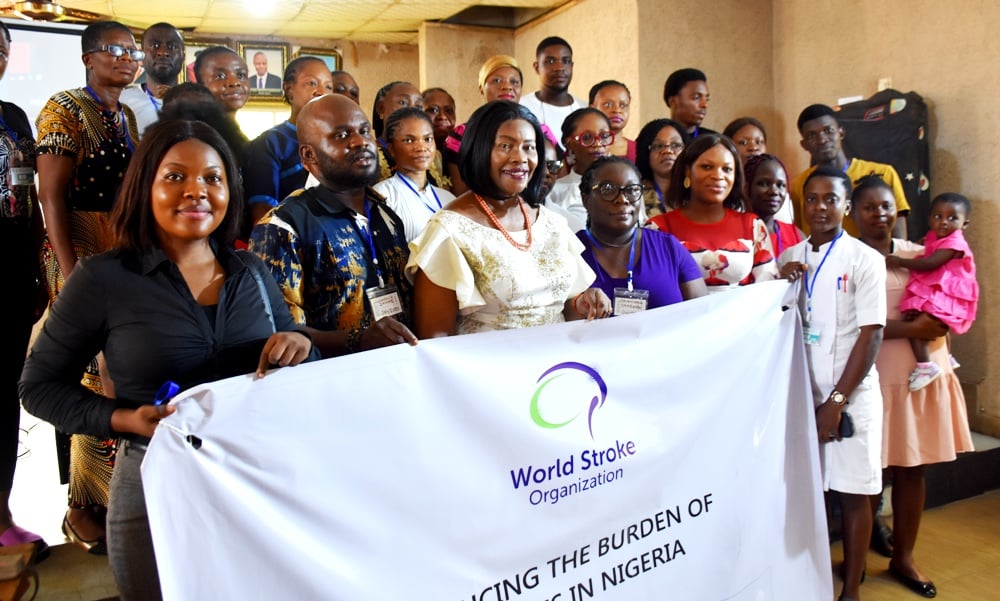As Nigeria joins the world to celebrate the 2025 World Stroke Day, the central message resonates strongly—prevention starts with awareness and timely action.
With cases on the rise across the country, health organisations and medical institutions are ramping up efforts to educate citizens and promote early detection.
The nationwide campaign, themed “Power to Stop Strokes in Nigeria,” aims to empower communities with practical knowledge on prevention, recognising early symptoms and supporting survivors in recovery.
In several Nigerian states, notably Anambra and Delta, trained community volunteers known as stroke champions are leading the charge.
They visit schools, universities, markets and workplaces to share important information about stroke prevention using the #ActFAST method—teaching people how to identify Face drooping, arm weakness, speech difficulty and the time to call for help.
Through this grassroots approach, citizens are learning to make healthier lifestyle choices, such as reducing salt intake, engaging in daily exercise and regularly checking their blood pressure.
Free health screenings
To mark this year’s World Stroke Day, a series of free community health screenings have been initiated in partnership with public and private hospitals across major towns and cities.
These screenings include checks for blood pressure, blood sugar, cholesterol and body mass index, all critical indicators of stroke risk.
Citizens are encouraged to participate in these programmes, which not only detect early warning signs but also offer professional advice on managing hypertension and diabetes.
Complementing these screenings are weekly fitness sessions, designed to promote physical activity, improve cardiovascular health and promote weight management.
Stroke assemblies and community education
A key feature of this year’s campaign is the launch of Stroke Assemblies—community seminars, radio discussions and educational workshops committed to stroke awareness.
These assemblies create open conversations on how to recognise symptoms, all the possible immediate steps to take during an emergency and how to support survivors through rehabilitation.
In rural and some semi-urban areas, mobile outreach units are now being deployed to conduct door-to-door education and provide basic health monitoring for those who lack easy access to hospitals.
Digital solutions for stroke prevention
Nigeria’s healthcare sector is gradually embracing digital-health tools to improve prevention and management.
Some hospitals, like CadioCare Multi-specialty Hospital, have introduced telemedicine platforms that allow patients to consult neurologists and cardiologists remotely.
Similarly, mobile health apps like DRO Health now enable users to track their blood pressure and receive medication reminders.
These tools, though still developing, have been instrumental in ensuring that people in remote areas can access preventive care and medical guidance without needing to travel long distances.
Beyond hospital-based interventions, faith-based organisations are also sustaining the drive. Through partnerships with the Federal Ministry of Health and various state health agencies, nationwide awareness drives now focus on non-communicable diseases like hypertension and heart disease, both of which prompt stroke.
Some organisations have introduced community fitness clubs, stress-management programmes and dietary education routines targeting vulnerable groups like civil servants in middle age. These initiatives emphasise the importance of routine medical checks, balanced diets and mental well-being in preventing lifestyle-related illnesses.
Through collaborative initiatives, awareness programmes and community-based interventions, the fight against stroke is gaining ground. The message to every household remains clear and urgent: act now, stay informed and help stop strokes in Nigeria.
Summary not available at this time.






